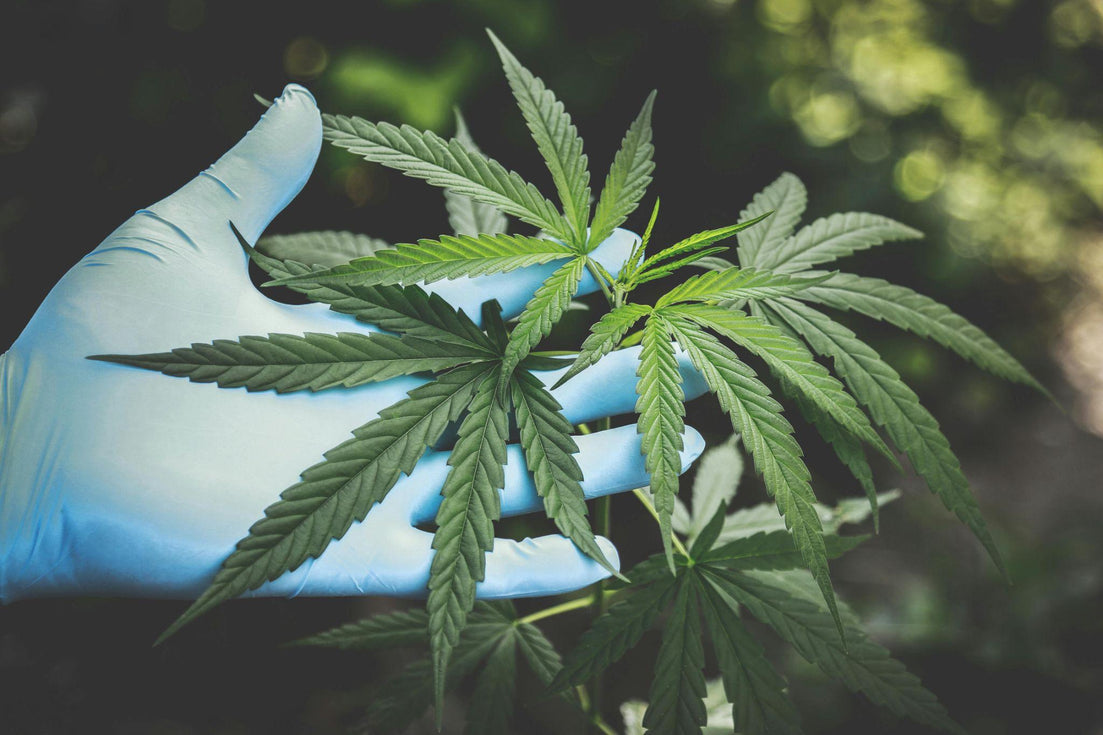Your cart is currently empty.

Exploring THC-O effects can feel like venturing into uncharted territory.
This synthetic cannabinoid has stirred up quite a buzz, and for good reason.
The potency of its psychoactive impact is reportedly higher than other active ingredients in cannabis. But with this increased strength comes potential risks.
Diving deeper into the THC-O effects, we'll uncover the implications it carries for users' health, legal status, and even drug testing outcomes.
Unraveling the Mystery of THC-O and Its Psychoactive Effects
The ever-evolving landscape of cannabinoids introduces us to intriguing compounds like THC-O. Noted for its distinct psychoactive effects, it stands out among other active ingredients in cannabis. Preliminary reports hint at a potency that might surpass traditional cannabinoids, sparking interest from consumers and researchers.
Diving into Synthetic Cannabinoids
Synthetic cannabinoids have gained traction recently due to their unique characteristics compared to naturally occurring ones such as Delta 9 or CBD. Among these new players is THC-O acetate which showcases enhanced potency when consumed via various methods like vape cartridges or edibles including gummies.
National Institute on Drug Abuse warns about potential health risks associated with unregulated synthetic substances, citing possible psychological reactions and physical side-effects. Hence caution is advised while experimenting with any novel substance until extensive research establishes its long-term impacts.
A Deeper Look Into THC-O's Potency & Psychoactive Effects:
If we delve deeper into THC-O's effects, it becomes evident that this compound isn't your average cannabinoid. Users often report experiencing intense psychedelic-like states even after consuming small quantities, according to early studies. The onset time may also differ from conventional cannabis products - sometimes taking up to half an hour before the full impact kicks in.
This heightened level of potency could catch some users off guard if they're not ready for what lies ahead once the effect hits peak intensity. Moderation remains key, especially when trying something powerful for the first time.
An Array Of Products Featuring THC–O Acetate:
- Vape Cartridges: A quick route towards absorption since vaping bypasses digestion, leading to faster highs compared to those achieved by ingesting edibles.
- Gummies: Perfect for those just starting out. Gummies give you a measured dose, making it easier to control.
THC-O, a synthetic cannabinoid with unique psychoactive effects, is making waves in the cannabis world. Its potency outshines traditional cannabinoids and can lead to intense psychedelic-like states even in small doses. While intriguing, it's crucial to tread carefully as its long-term impacts are still under study. From vape cartridges for quick absorption to gummies for controlled dos
Legal Status of THC-O in the United States: A Grey Area?
When it comes to hemp products, and specifically THC-O, there's a fair bit of confusion. Is it legal? If so, where? The legality of this topic is far from certain. For more details on this topic, click here.
"THC-O is not directly listed under the Controlled Substances Act (CSA), leading some to believe that it's technically legal."
Despite appearances, we're not in the clear. The Federal Analogue Act complicates things by stating any chemical "substantially similar" to a Schedule I or II drug can be treated as such for prosecution purposes.
Federal Level Regulations: It’s Complicated.
The Federal Analogue Act throws us for a loop when dealing with substances like THC-O because its molecular structure closely resembles Delta-9-THC—a Schedule I drug. Even though THC-O isn’t explicitly mentioned within CSA schedules—it may still fall under this act.
Hemp Products: An Unexpected Loophole?
In 2018, Congress passed the Farm Bill which legalized hemp at a national level but didn’t address individual cannabinoids derived from hemp. Here’s an interesting read about these regulatory nuances.
As per current regulations or lack thereof—certain derivatives like THC-O could potentially remain legally ambiguous until expressly legislated against or included within existing frameworks governing cannabis compounds federally.
Diverging Paths: State vs Federal Laws on THC-O
Laws regarding THC-O vary widely across America with some states adopting lenient attitudes towards cannabis-related substances while others maintain strict prohibitions despite changes at the federal level. Before procuring or using THC-O, always check local state laws first. This resource provides detailed information about various state laws.
.
Exciting new findings are surfacing about the health impacts linked to cannabinoids, like THC-O.
The legal status of THC-O in the US is murky, teetering on a thin line between legality and prohibition. It's not directly listed under the Controlled Substances Act but could be considered illegal due to its similarity with Delta-9-THC under the Federal Analogue Act. State laws also vary wildly - it's a patchwork quilt of regulations. So
The Production Process and Chemicals Involved in Creating THC-O
Unraveling the secrets of THC-O production might seem like a daunting task, but with some basic understanding of chemistry, it's actually pretty straightforward. Let's delve into how this powerful compound is created using specialized chemicals.
Here are the steps that take us from raw cannabis to potent THC-O:
1. Extracting Delta-9
To begin the process of creating your own THC-O, you must first acquire Delta-9 - its precursor molecule, delta-9-tetrahydrocannabinol. This cannabinoid is extracted directly from the cannabis plant through a process known as solvent extraction.
Think of it like making coffee - you're taking out flavor compounds from beans into water by using heat and pressure, much like the process for extracting Delta-9. You're extracting flavor compounds from beans into water by using heat and pressure – similar principles apply here too.
2. Converting Delta-9 Into THCA With Acetic Anhydride
Using acetic anhydride as a solvent and reactant, the conversion process involves transforming Delta 9's hydroxyl group (-OH) into THCA - Tetrahydrocannabinolic Acid. It interacts with the hydroxyl group (-OH) on the Delta 9 molecule, transforming it into THCA — Tetrahydrocannabinolic Acid.
Note: Be sure to consider not only its utility but also the potential harm if mishandled improperly, leading to potentially dangerous situations. This is especially important considering that it’s classified among Schedule II controlled substances by DEA regulations, implying strict regulatory oversight on usage rights and storage guidelines that must be strictly adhered to at all times throughout every step along the way towards finalizing the end product – namely high-quality, consistently produced batches free from unwanted contaminants. This contributes positively to the overall user experience, regardless of the intended purpose, whether it's medical treatments exploring the therapeutic benefits of cannabinoid compounds in the general public or looking for alternative ways to enjoy the benefits offered by naturally occurring cannabinoids found within Cannabis sativa plants and their derivatives. Making the whole endeavor worthwhile despite the challenges faced given the current legislative landscape surrounding the legality and related matters associated with the marijuana industry in the United States and beyond borders globally speaking.
Key Takeaway:
Creating THC-O isn't rocket science, but it does require a bit of chemistry know-how. The process starts with extracting Delta-9 from cannabis plants - think brewing coffee. Then, the magic happens when acetic anhydride transforms Delta-9 into THCA. But remember, this isn't a DIY project for amateurs; handling these chemicals improperly can be
Unveiling the Health Risks of Consuming or Vaping THC-O
Synthetic cannabinoids, such as THC-O acetate, have become a major concern in the field of health. This is due to the potential risks they pose, including lung damage and injuries that are particularly associated with vaping these substances.
The direct exposure of the lungs to these synthetic chemicals raises concerns among healthcare professionals and users alike. Let's delve deeper into this topic.
A Closer Look at the Potential for Abuse
It's not just about physical harm when it comes to substances like THC-O - there is also a high risk of abuse. These synthetic variants are known for their potent psychoactive effects, which can lead users down a dangerous path of misuse and addiction.
The absence of natural buffers found in cannabis means that the intensity of the highs produced by THC-O can encourage repeated use despite negative consequences - a clear indication of substance abuse disorder.
This psychological threat is accompanied by another pressing concern: five serious side effects directly linked to its usage, namely paranoia, hallucinations, rapid heart rate, disorientation, and anxiety attacks.
Lung Injuries Associated with Vaping THC-O Acetate
Vaping has become a popular method among many cannabinoid consumers; however, this trend comes with its own set of dangers. When you vape products containing synthetic compounds like THC-O, your lungs are directly exposed to harmful particles that they are not designed to handle effectively, leading to severe respiratory disorders over prolonged exposure.
- Inhalation Hazards from Synthetic Chemicals:
- Toxicants from High-Temperature Vapes:
- If vaped at high temperatures, many artificial additives decompose into toxicants, causing airway irritation and potentially leading to inflammation or even more serious lung injuries over time. This is not limited to consuming traditional e-cigarettes but also extends to newer variants incorporating drugs such as THC-o-acetate vape cartridges.
- Worries About Mental Health
Key Takeaway:
While THC-O's potent psychoactive effects may intrigue some, it comes with serious health risks. The absence of natural buffers in cannabis leads to intense highs that can spiral into misuse and addiction. Plus, vaping THC-O exposes the lungs directly to harmful particles causing severe respiratory disorders over time. It also brings along side effects like paranoia, hallucinations, rapid heart rate,
Understanding the Impact of THCO on Drug Testing
Navigating the world of THC analogs like Tetrahydrocannabinol-O-acetate (THCO) can be overwhelming, especially when it comes to understanding how they might affect drug test results. But don't worry. We'll provide clarity on this subject to help you make informed decisions in the cannabis market.
1. Identifying THCO in Standard Tests
The crux of the matter is that most drug tests are designed specifically for Delta 9 THC, a well-known illegal drug found in cannabis. These tests may fail to detect other cannabinoids or their derivatives such as THCO due to significant structural differences between these compounds.
However, this doesn't necessarily guarantee that one is in the clear. It's important to remember that since THCO is derived from CBD or Delta-8 THC via acetate ester addition, there could be residual traces left over post-synthesis which might show up on highly sensitive tests. (source)
2. Legal Consequences Linked with Detection
Beyond just testing positive, using substances like this could have serious legal implications depending on your jurisdiction's laws about cannabinoid use and possession. A simple misunderstanding about what's allowed where you live could lead down a slippery slope towards job loss or even criminal charges if detected during a screening.
To prevent falling into any potential legal traps after consuming products containing this novel cannabinoid variant, take time beforehand for thorough research regarding local laws and detection limits set by organizations like workplaces or athletic associations before deciding whether its consumption suits your personal circumstances.
3. Uncertainty Around Unknown Factors
A big question mark still hangs around one critical point: How long does THCO stay within your system? This 'half-life' concept plays an essential role in determining when you'd likely pass a urine-based screening again following consumption - but unfortunately, current scientific investigation has yet to provide conclusive evidence.
It might seem a bit complex at the moment, but hang in there. You see, science is always on the move - particularly when it comes to medicine.
Key Takeaway:
THC-O can be a real curveball in drug tests, as most are tailored to spot Delta 9 THC, not its cousins like THC-O. However, bear in mind that traces of the parent compound may linger post-synthesis and trigger highly sensitive tests. Additionally, there's more at stake than just passing or failing a test - legal implications vary by location
FAQs in Relation to Thc-O Effects
What is the THC-O high like?
The effects of THC-O are reported to be intense and psychedelic, often described as three times stronger than traditional THC.
What is THC-O and its effects?
THC-O, or tetrahydrocannabinol acetate, is a synthetic cannabinoid with potent psychoactive properties. Its effects can include altered perception, euphoria, and sedation.
What are the positive effects of THC-O?
Beyond its psychoactive qualities, some users report therapeutic benefits from THC-O, such as pain relief and reduced anxiety.
Is THC-O stronger than Delta 9?
Absolutely. Reports suggest that the potency of THC-O could be up to three times greater than the impact of Delta-9-THC.
Conclusion
So, we've delved into the world of THC-O, exploring its psychoactive effects and more.
We now understand that this synthetic cannabinoid delivers a stronger impact than most cannabis components.
Its legal status in the US remains somewhat unclear, with variations between federal and state levels.
The production process involves the use of complex chemicals like acetic anhydride to convert it into a potent compound.
We've also discussed potential health risks, such as lung damage from vaping or consuming THC-O products.
Above all, it's important to note that using THC-O may affect drug test results due to its similarity to other illicit drugs.
If you're intrigued by cannabinoids like THC-O or simply want to learn more about the ever-evolving cannabis landscape, Weed Republic is your ultimate resource!
Dive deeper into everything from CBD to Delta 8 and Delta 9 at Weed Republic. Your journey to knowledge has only just begun!



